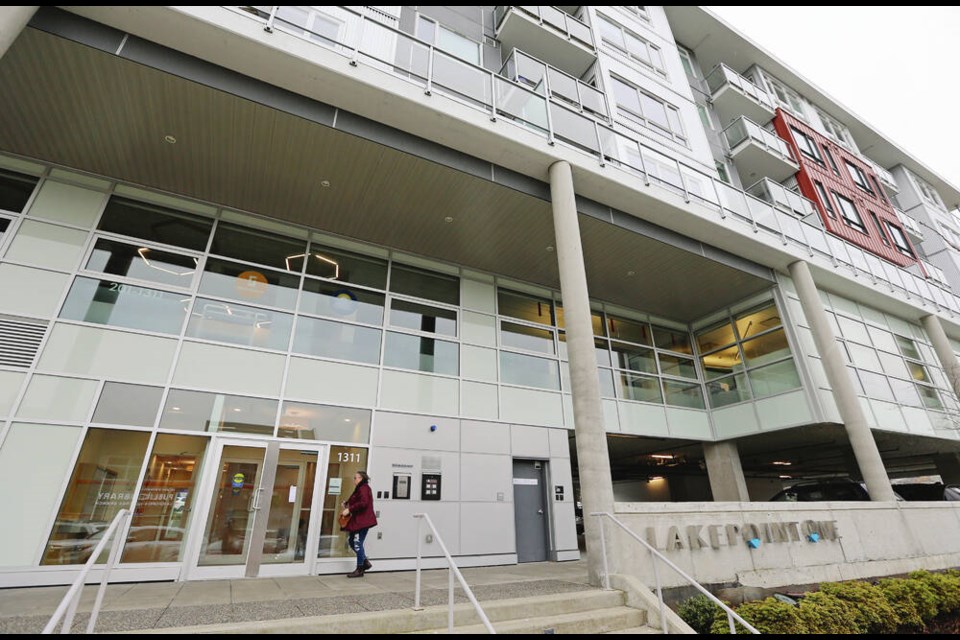In a matter of weeks, postings for provincial government jobs will open up to qualified people wherever they live in B.C., an initiative that in the future may see small government satellite hubs in rural communities.
Effective April 1, government job postings will be open to people in any B.C. community where the hiring ministry has an office but even then, there’s room for negotiation. The remote-work postings do not apply outside of B.C.
The 36,000-member-strong B.C. public service lost about 3,000 employees just last year. Filling vacancies and expanding the talent pool is an “urgent issue,” said Shannon Salter, head of the B.C. public service.
Salter unveiled the new workplace strategy this month, saying embracing flexible work is essential to fill job vacancies and attract and retain a diverse workforce, and noting that half of the public service is already working remotely.
The strategy includes opening all job postings to anyone in the province and putting the onus on government ministries to explain why when they can’t accommodate flexible work arrangements.
Over the past decade, retirements have stayed fairly constant, with some fluctuations during the pandemic, but people are leaving for other reasons, said Salter. “I think that reflects a shift in demographics but also a very tight labour-supply market and changing expectations of the workforce.”
Salter said it’s her job to make sure the B.C. public service is an attractive workplace so as to “attract the best and the brightest, the most diverse and talented people across the province.”
“These changes are really meant to position the B.C. public service as an employer of choice — regardless of where you are in B.C.,” said Salter.
On Thursday, Cisco Canada released the second edition of its benchmark Hybrid Work Study conducted by Angus Reid. The study found 81 per cent of Canadians said flexible work policies affect whether they stay at or leave a job and are a top priority when choosing an employer, second only to salary.
In the first few months of the new B.C. policy, the expectation is that most of those hired for remote work will have a hiring- ministry office in their community, but Salter said that is also flexible.
“If a job can be done fully remotely from a community where there’s no ministry office, it is open to the hiring ministry to proceed on that basis,” said Salter. “This is something we’ll learn a lot more about as we go forward, as we collect data, as we learn from these teams in terms of what works best.” Over the next couple months or longer, based on evaluation of the rollout, the public service will look to accelerate opportunities for people from one ministry to work out of the office of another ministry, said Salter.
Having ministry offices — or satellite-type ministry offices — is important, as there are situations where people and teams need to be together in person, Salter said.
ShareSpace locations, which are available to all ministries and any mobile B.C. public service employee with supervisors’ approval, are a key pillar of the government’s new Hybrid Workplace Strategy.
Lakepoint ShareSpace opened two years ago in Langford, and about 1,000 public servants have signed up to work there on an intermittent basis.
It can support up to 100 employees, through a sign-in system, with additional collaboration areas for teams. From October to December, it reported 32 per cent average use, peaking to 70 per cent during special events.
Given strict policies around confidentiality, privacy and protection of information under remote work agreements, public servants would not be permitted to work in public places — beaches and coffee shops — since that “would not usually meet those requirements,” said Salter.
During the height of pandemic restrictions, almost all public servants who weren’t front-line workers such as corrections officers, wildfire fighters, liquor and cannabis retail staff, and client service staff worked remotely and were given secure equipment and strict policies and procedures with respect to safeguarding information, said Salter.
She said key to the remote-work initiative is that service to the public be maintained at current levels, at minimum, and potentially exceeded.
“Mission No. 1 is to ensure effective excellent service of programs and services to the public,” said Salter.
While Victoria businesses that rely on walk-in and tourist traffic have expressed concerns about the remote work policy, Salter — who has worked remotely in the past — said people are always going to want to live in Victoria.
“I anticipate we’re going to continue to hire quite a few public servants from Victoria,” said Salter. “But I would also say that requiring public servants to sit for an hour in traffic to pay $20 for parking, to sit in their office cubicle all day on video calls, and then get back in their cars and traffic for another hour is not an effective retention and recruitment strategy.”
To ensure the rollout goes smoothly, Salter said the government plans to take a step-by-step approach, gather information and feedback, and work closely with branches, divisions and ministries to collaboratively plan for the future.
B.C. General Employees’ Union president Stephanie Smith said during contract talks last year, the union requested expanded, fair and consistent application of remote work policies in the public service, and “couldn’t agree more” with expanding those opportunities for members.
>>> To comment on this article, write a letter to the editor: [email protected]



